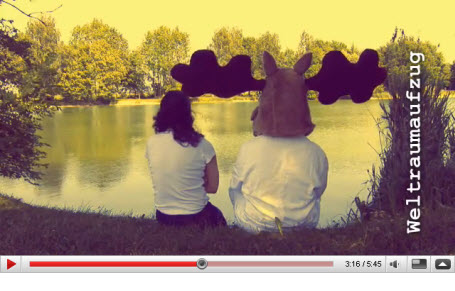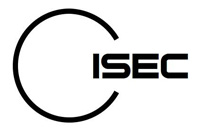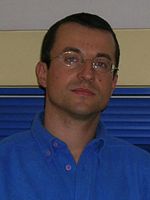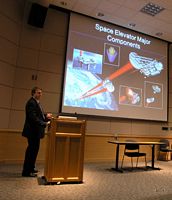 This week’s Weekend Walkabout jets to India’s space conference, Ecuador’s cosmic peak, and Greenland’s linguistic gift to space elevators—let’s get started!
This week’s Weekend Walkabout jets to India’s space conference, Ecuador’s cosmic peak, and Greenland’s linguistic gift to space elevators—let’s get started!
 We first travel to India and learn about the just-completed Global Space Exploration Conference – GLEX 2025. Hosted by the Indian Space Research Organization (ISRO) and the Astronautical Society of India, it took place in New Delhi from May 7-9, 2025, and was extensively covered on X (@GLEX2025). While there was no Space Elevator track, these conferences can only increase incentives for visionaries, scientists and engineers to deliver better solutions for space travel. Couple this with the ISEC proposal which states that their space elevator solution can send supplies to Mars on a daily basis and my off-stated belief that India could be a real leader in the space elevator arena and there is a lot of synergy here. Here’s to more space-related conferences in India, and, hopefully to include space-elevator tracks soon.
We first travel to India and learn about the just-completed Global Space Exploration Conference – GLEX 2025. Hosted by the Indian Space Research Organization (ISRO) and the Astronautical Society of India, it took place in New Delhi from May 7-9, 2025, and was extensively covered on X (@GLEX2025). While there was no Space Elevator track, these conferences can only increase incentives for visionaries, scientists and engineers to deliver better solutions for space travel. Couple this with the ISEC proposal which states that their space elevator solution can send supplies to Mars on a daily basis and my off-stated belief that India could be a real leader in the space elevator arena and there is a lot of synergy here. Here’s to more space-related conferences in India, and, hopefully to include space-elevator tracks soon.
From India, we head south and west to Ecuador, another country that straddles the equator. In addition to this geographical advantage, Ecuador has history with space exploration, hosting a NASA tracking station since 1957, and taking control of this station from NASA in 1982. They also recently (2023) signed the Artemis Accords, a resolution affirmed by multiple countries for the peaceful exploration of space.
 Ecuador’s Chimborazo, towering 6,263 m, lies just 177 km south of the equator—close enough to make it a prime candidate for a space elevator anchor. Its summit is also the point on Earth farthest from its center due to earth’s equatorial bulge, standing tall as a potential space elevator anchor. Fun Fact: Is Chimborazo’s 6,263 m summit the thinnest-aired spot on Earth? Surprisingly, no—Mount Everest’s higher 8,848 m peak has a thinner atmosphere, with fewer air molecules above, as shown by its lower pressure (314 hPa vs. 490 hPa). Still, Chimborazo’s equatorial position makes it ideal for a space elevator, leveraging Earth’s spin to lift climbers to orbit with less energy. Alas, security concerns will probably mandate a space elevator being located at sea, but imagine a tether rising from this volcanic giant, connecting Ecuador to the stars! Most Ecuadorans would refer to it as an ascensor espacial, Spanish for space elevator.
Ecuador’s Chimborazo, towering 6,263 m, lies just 177 km south of the equator—close enough to make it a prime candidate for a space elevator anchor. Its summit is also the point on Earth farthest from its center due to earth’s equatorial bulge, standing tall as a potential space elevator anchor. Fun Fact: Is Chimborazo’s 6,263 m summit the thinnest-aired spot on Earth? Surprisingly, no—Mount Everest’s higher 8,848 m peak has a thinner atmosphere, with fewer air molecules above, as shown by its lower pressure (314 hPa vs. 490 hPa). Still, Chimborazo’s equatorial position makes it ideal for a space elevator, leveraging Earth’s spin to lift climbers to orbit with less energy. Alas, security concerns will probably mandate a space elevator being located at sea, but imagine a tether rising from this volcanic giant, connecting Ecuador to the stars! Most Ecuadorans would refer to it as an ascensor espacial, Spanish for space elevator.
 Finally, we wind up in Greenland, a place much in the news lately. In an earlier post about Greenland, I wrote about how the Thule Nano Institute was leveraging zinc nanofibers to make a space elevator. In the real world, however, there doesn’t appear to be a word in their native language (Greenlandic – known by its speakers as Kalaallisut) for space elevator. It is a polysynthetic language, meaning complex ideas can be expressed in single words by combining roots, affixes, and suffixes, sometimes forming very long words. So let me take this opportunity to add the next language to my Translation Project and propose a new word in Kalaallisut – Qilaksioqqut (pronounced KEE-lack-see-OK-coot). This can be translated as “sky lifter”. I will leave it to my myriad Kalaallisut-speaking readers to say “yay” or “nay” to my proposed new word and its pronunciation.
Finally, we wind up in Greenland, a place much in the news lately. In an earlier post about Greenland, I wrote about how the Thule Nano Institute was leveraging zinc nanofibers to make a space elevator. In the real world, however, there doesn’t appear to be a word in their native language (Greenlandic – known by its speakers as Kalaallisut) for space elevator. It is a polysynthetic language, meaning complex ideas can be expressed in single words by combining roots, affixes, and suffixes, sometimes forming very long words. So let me take this opportunity to add the next language to my Translation Project and propose a new word in Kalaallisut – Qilaksioqqut (pronounced KEE-lack-see-OK-coot). This can be translated as “sky lifter”. I will leave it to my myriad Kalaallisut-speaking readers to say “yay” or “nay” to my proposed new word and its pronunciation.
And that’s a wrap for this week’s Weekend Walkabout.










 A couple of weeks ago, I received an email from
A couple of weeks ago, I received an email from  What does the above screenshot (which I absolutely LOVE) have to do with the Japan Space Elevator Games? Bear with me…
What does the above screenshot (which I absolutely LOVE) have to do with the Japan Space Elevator Games? Bear with me… In March of 2008, I
In March of 2008, I  I am very pleased to announce that Jan Bilek, a long-time Space Elevator enthusiast, has volunteered to take on this task. Jan will be actively soliciting translations through his contacts and I’m confident that he will be able to move this project forward. The Space Elevator will benefit all humanity and I think it is only fitting that we who are actively promoting this idea be able to communicate at least the name of the concept in as many languages as possible.
I am very pleased to announce that Jan Bilek, a long-time Space Elevator enthusiast, has volunteered to take on this task. Jan will be actively soliciting translations through his contacts and I’m confident that he will be able to move this project forward. The Space Elevator will benefit all humanity and I think it is only fitting that we who are actively promoting this idea be able to communicate at least the name of the concept in as many languages as possible.


 With the addition of the Hungarian version of ‘Space Elevator’ (
With the addition of the Hungarian version of ‘Space Elevator’ (